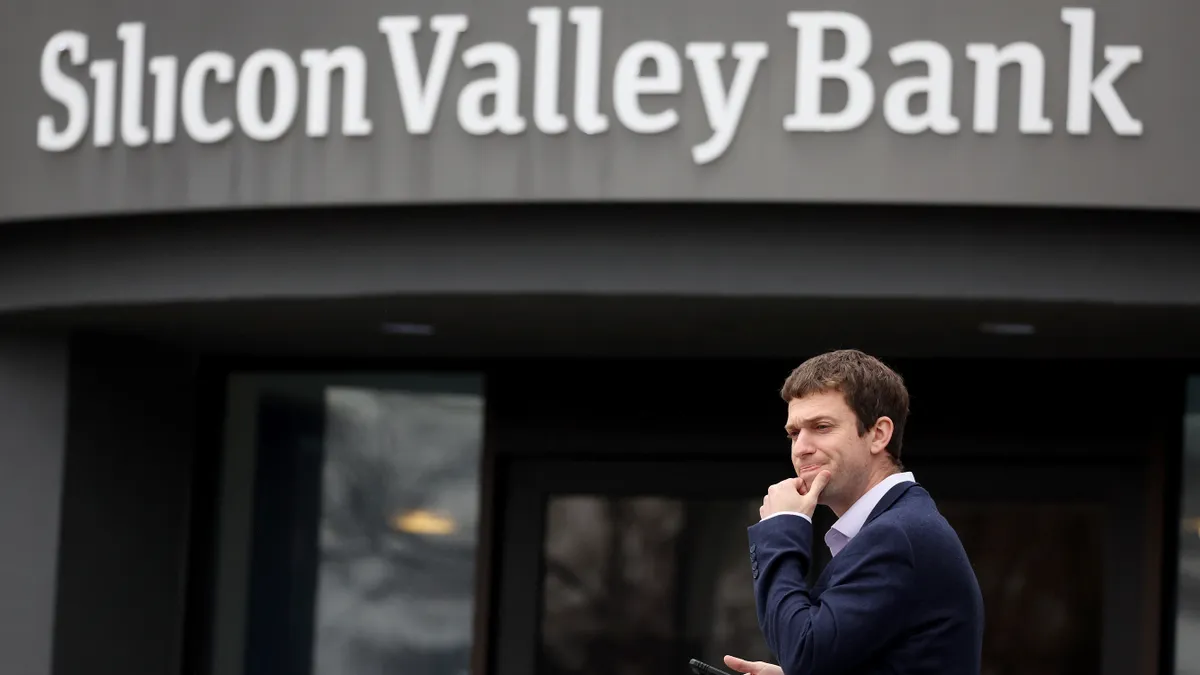Silicon Valley Bank’s former parent company must wait to find out if it can get back the roughly $2 billion in cash it had when regulators seized it earlier this month.
During the company’s first hearing in bankruptcy court Tuesday, lawyers for SVB Financial Group claimed that the Federal Deposit Insurance Corp. has “improperly blocked” the company’s access to cash it needs to pay back creditors.
“Right now, not only has the bank been taken, but all of the cash has been taken,” James Bromley, a lawyer for SVB Financial Group, said at the hearing in New York, according to The Wall Street Journal.
SVB Financial won provisional court approval Tuesday to spend just some of the money it claims to be owed by regulators. Lawyers for bondholders who are owed more than $3.3 billion are concerned the FDIC will try to keep the money, Bloomberg reported.
Following the FDIC’s seizure of Silicon Valley Bank on March 10, regulators directed all deposits into the newly created Silicon Valley Bridge Bank. SVB depositors were allowed to access the funds they had in the old bank in the new bridge bank.
However, on March 16, one day before SVB Financial filed for bankruptcy, regulators directed SVB Financial’s deposits back into an account under FDIC control while it explores claims it may bring against SVB Financial, The Wall Street Journal reported.
"There was nothing wrong with freezing accounts and trying to protect deposits,” Kurt Gwynne, a lawyer for the FDIC, told Reuters.
Tom Lauria, a lawyer representing bondholder Appaloosa LP, told U.S. Bankruptcy Judge Martin Glenn that the FDIC keeping the $2 billion “creates jeopardy” in the bankruptcy case.
“It seems to be a more urgent issue than a latent one in the context of this case,” Lauria said, according to Bloomberg.
FDIC receivership rules dictate that the agency can take months to decide whether or not it’ll return the money, and years if the decision is appealed, Bloomberg reported, leaving Glenn to joke that the process could be resolved “sometime in the next century.”
FDIC rules might also limit what SVB Financial could do with the funds it receives during reorganization, if it chooses to sell off viable parts of the business.
While the bank was SVB Financial’s core business, it’s also parent to SVB Capital, an investment management company that oversees almost $10 billion in funds; SVB Securities, an investment bank; and SVB Private, a wealth-management company, according to the company’s 2022 10-K filing.
The FDIC “could argue that funds or assets at the parent level should be used to fill any hole in the bank’s balance sheet before bondholders can be paid a penny,” according to the Journal.














